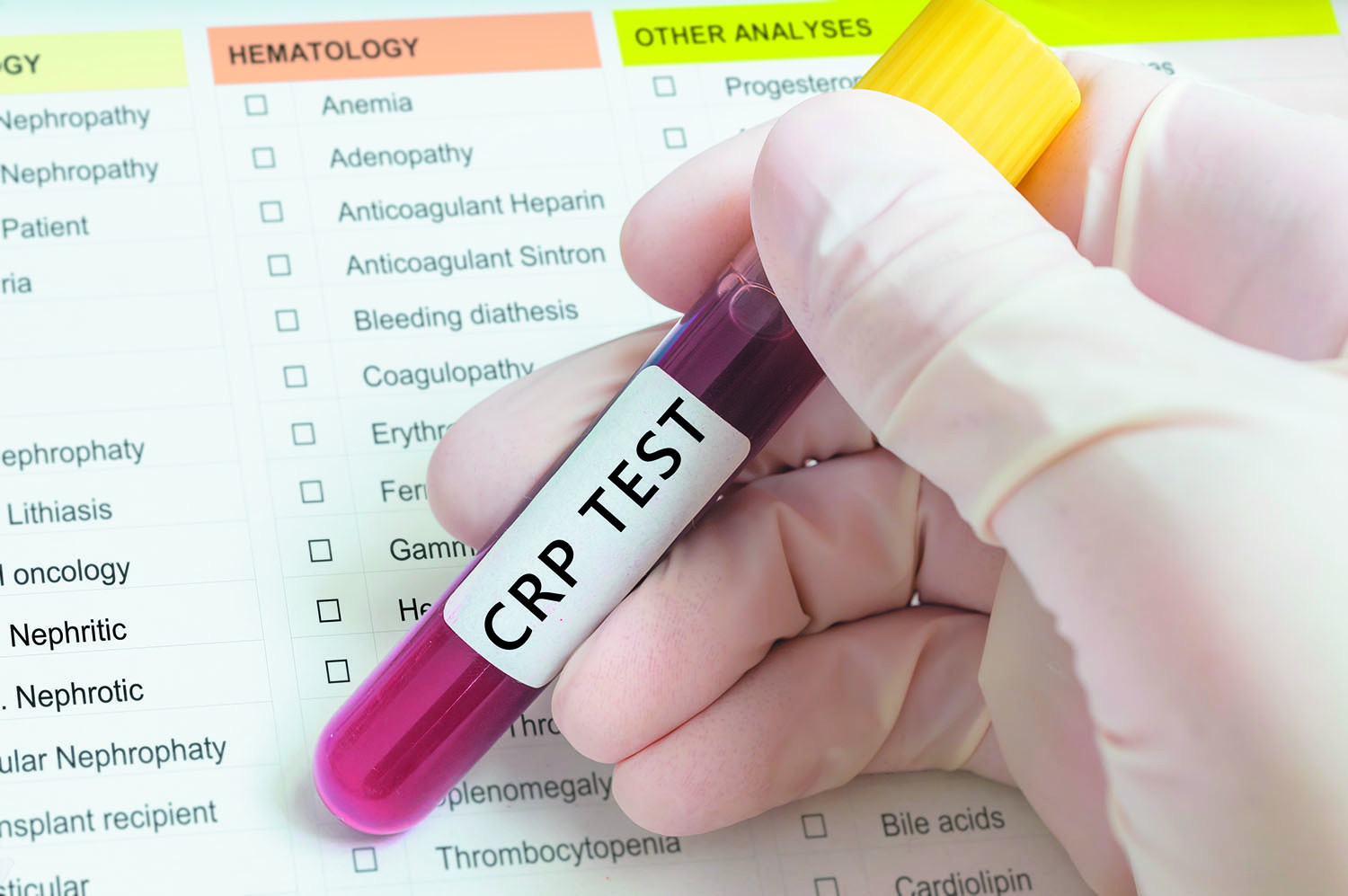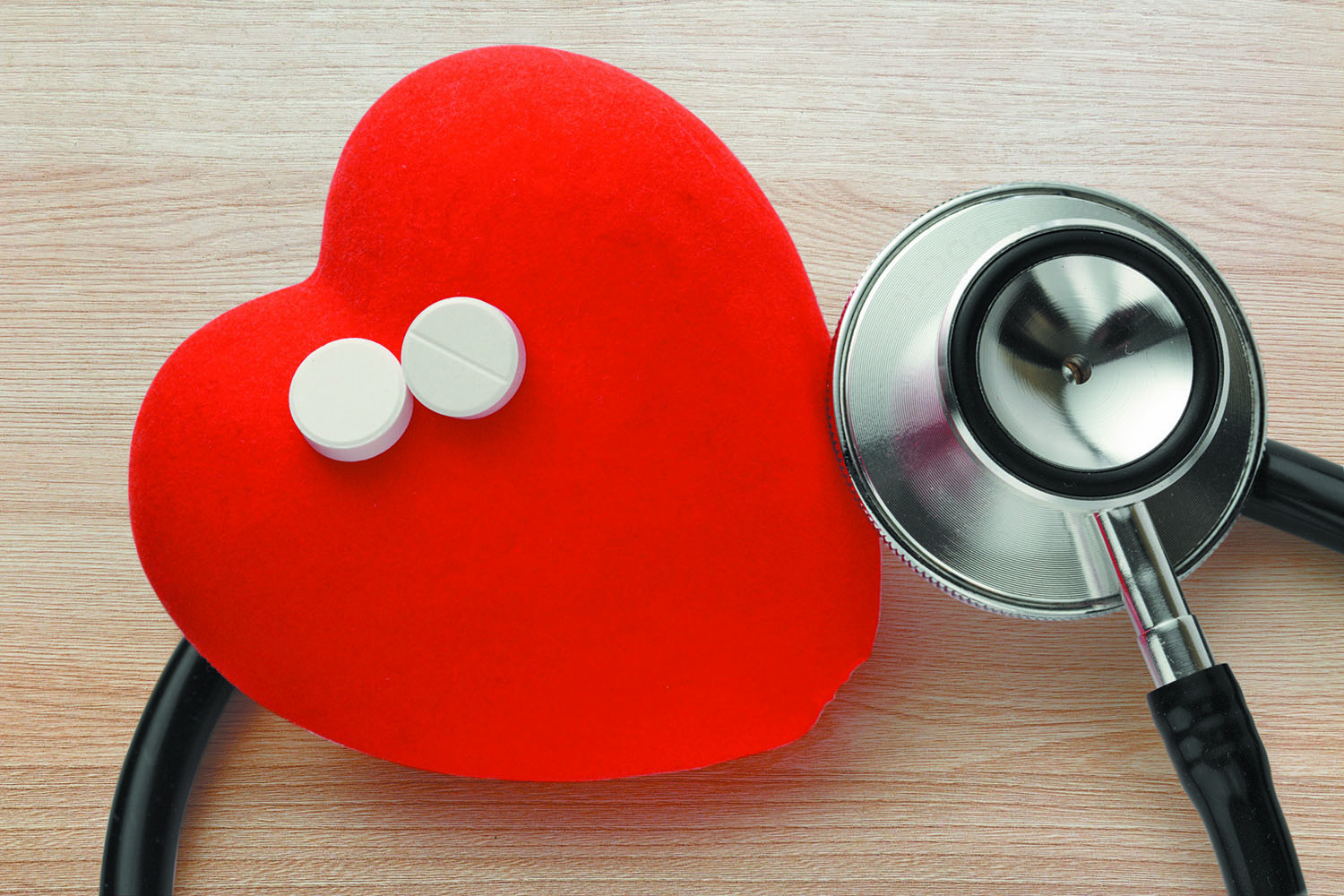
Respiratory health harms often follow flooding: Taking these steps can help

Tips to leverage neuroplasticity to maintain cognitive fitness as you age

Can white noise really help you sleep better?

Celiac disease: Exploring four myths

What is prostatitis and how is it treated?

What is Cushing syndrome?

Exercises to relieve joint pain

Think your child has ADHD? What your pediatrician can do

Foam roller: Could you benefit from this massage tool?

Stepping up activity if winter slowed you down
Medications Archive
Articles
Treating inflammation protects the heart
News briefs
People with coronary artery disease or strong risk factors for developing it are often treated with statin drugs. Statins were developed to treat high levels of LDL (bad) cholesterol, because such high levels increase the risk of coronary artery disease. Studies convincingly showed that statins do indeed reduce both cholesterol and the risk of coronary artery disease, as expected. However, a large Harvard study published in 2008 found that statins also lowered the risk even in people with normal LDL levels. Why? Many doctors speculated that the reason might be that statins also reduce inflammation, another contributor to heart attacks and stroke. A new Harvard study, published online August 27, 2017, by The New England Journal of Medicine used a novel medication called canakinumab, which attacks inflammation but does not lower LDL cholesterol. The study involved over 10,000 people who had suffered a heart attack and whose blood showed a modest level of inflammation. The inflammation-fighting medicine lowered the rates of heart attacks, strokes, and death from heart disease. This study supports the theory that the beneficial effects of statins may result from their ability to both lower cholesterol and tamp down inflammation. It also will lead to further study of this new drug as well as other treatments for inflammation.
Antibiotics: Part of the cure or part of the problem?
Avoid taking these drugs when they're not needed.
听Image: 漏 grThirteen/Thinkstock
It's the time of year again for sneezing, sniffling, and sore throats. But if you don't escape it, you can just head to the doctor for an antibiotic, and you'll be healthy again in no time. Right?
Probably not.
"Each year millions of Americans are treated with antibiotics when they don't need to be," says Dr. Erica Shenoy, an infectious disease physician, who is associate chief of the Infection Control Unit at Massachusetts General Hospital and assistant professor of medicine at Harvard Medical School.
Resistant to aspirin?
Ask the doctor
Q. I recently started taking low-dose aspirin, per my doctor's advice. But I heard that for some people, aspirin doesn't help prevent heart attacks. Is this true, and is there any way to find out if I'm one of those people?
A. The phenomenon you're referring to is sometimes called aspirin resistance. However, true aspirin resistance is very uncommon. There are tests for the problem, but I don't recommend them.
Targeting inflammation: A missing link in heart treatments
A novel anti-inflammatory drug may discourage repeat heart attacks.
听Image: 漏 vchal/Thinkstock
Inflammation grabbed the attention of researchers a couple of decades ago as a primary culprit in the progression of cardiovascular disease. However, identifying a drug therapy that leverages this link has been more elusive. With the results of the recent Canakinumab Anti-inflammatory Thrombosis Outcomes Study (CANTOS), published in the Sept. 21, 2017, issue of The New England Journal of Medicine, it appears that the dots are finally beginning to connect.
"For the first time, we have an anti-inflammatory therapy that can reduce the chance that a person who has already had a heart attack will have a repeat occurrence," says Dr. Peter Libby, a cardiologist at Harvard-affiliated Brigham and Women's Hospital. "This opens up a new field of treatment and offers hope to our patients." He is one of the co-authors of the study, which was led by his colleague and fellow Harvard Medical School professor Dr. Paul Ridker.
Meditation may help lower heart disease risk
Research we're watching
听Image: 漏 Svetlana Braun/Thinkstock
The ancient, mind-calming practice of meditation may have a role in reducing the risk of heart disease. So says a scientific statement from the American Heart Association in the Sept. 28, 2017, Journal of the American Heart Association.
Experts reviewed dozens of studies published over the past two decades. The results suggest that meditation may improve a host of factors linked to heart disease, including stress, anxiety, depression, poor sleep quality, and high blood pressure. It may also help people stop smoking. An added bonus: it's low-cost and poses no apparent risk.
Free services to help your health
Take advantage of free medications, blood pressure screenings, and听exercise classes to stay healthy and save money.
听Image: 漏 Wavebreakmedia/Thinkstock
Medical costs are soaring, but not every step you take to improve your health has to cost an arm and a leg. Some services are even free, regardless of your financial need. "These are incredibly helpful, although few of my patients know about many of them," says geriatrician Dr. Suzanne Salamon, an assistant professor at Harvard Medical School. The trick is knowing where to find the services, and this month we have suggestions on where to look.
Free exercise classes
Exercise is essential for overall health and mobility, especially as we get older. Many organizations support that by offering free exercise classes for older adults. Good places to find free classes: hospitals and senior centers. Give them a call, or look on the Internet to see an organization's event calendar.
Weighing the risks and benefits of aspirin therapy
It may help prevent a heart attack or stroke, but it comes with the risk of bleeding.
听Image: 漏 Garsya/Thinkstock
Maybe you've heard about people who take a low-dose aspirin each day to ward off heart problems. Since aspirin is a medicine you've probably used now and then without a problem, and since it is available without a prescription, you might consider trying a daily low-dose aspirin yourself. Don't do it. Unlike deciding to take a multivitamin, taking a daily aspirin isn't something you should decide to do on your own.
Aspirin therapy is typically prescribed to people who have atherosclerosis of the arteries of the heart or brain, or risk factors for such disease. Just who should take a daily aspirin, how much aspirin, and what type of aspirin are hotly debated issues, with clinical trials under way in search of answers. "Until those results are in, you should talk to your doctor before starting aspirin," says Dr. Deepak Bhatt, a cardiologist and the editor in chief of the Harvard Heart Letter.
Beta blocker blues?
Ask the doctor
Q. My doctor added metoprolol to the diuretic medication I'm taking for my high blood pressure. Ever since then, I've felt more tired than usual, and my wife says I seem a little depressed. Could the new drug be to blame, and if so, is there anything I can do about it?
A. Metoprolol (Lopressor, Toprol) belongs to a class of drugs known as beta blockers. These drugs 鈥� which make the heart beat slower and with less force 鈥� used to be given as a first-choice treatment for high blood pressure. But they can cause fatigue and depression in some people, as well as other side effects, such as erectile dysfunction.
Marijuana linked to high blood pressure risk
Research we're watching
People who smoke marijuana may face a higher risk of dying of complications of high blood pressure than people who never use the drug, new research suggests.
The study included 1,213 people ages 20 and older who were part of a larger national health survey that began in 2005. Those who said they'd ever used marijuana (57%) were considered users. Researchers then looked at data on different causes of death in 2011 and estimated the association between marijuana use with death from high blood pressure, heart disease, and stroke.
Why do I bruise more easily as I age?
On call
Q. I seem to bruise more frequently as I get older. Even when I have not bumped into anything, I see bruises on my arms. What causes that, and should I be worried?
A. Easy bruising is a common issue for many older men. That's because of a combination of less subcutaneous (fat) tissue and more fragile blood vessels.

Respiratory health harms often follow flooding: Taking these steps can help

Tips to leverage neuroplasticity to maintain cognitive fitness as you age

Can white noise really help you sleep better?

Celiac disease: Exploring four myths

What is prostatitis and how is it treated?

What is Cushing syndrome?

Exercises to relieve joint pain

Think your child has ADHD? What your pediatrician can do

Foam roller: Could you benefit from this massage tool?

Stepping up activity if winter slowed you down
Free Healthbeat Signup
Get the latest in health news delivered to your inbox!
Sign Up








